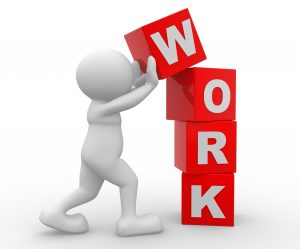 Work is an important role for many, making up around 34% of a person’s day. In addition to providing an income, it also provides status, identity and opportunities for social networking.
Work is an important role for many, making up around 34% of a person’s day. In addition to providing an income, it also provides status, identity and opportunities for social networking.
The ability to return to work after an Acquired Brain Injury (ABI) is often one of the first things that the person may think about. It is frequently identified as a goal for rehabilitation. The person may be concerned about whether they will be able to return to the job they did before their injury, what practical and financial support they will have available and how legislation can be used.
Acquired Brain Injury and Impact on Return to Work
ABI may cause many sequelae including problems with physical functioning, cognition, communication, mental health, social functioning and behaviour. Sequelae of ABI may have a significant impact on the person’s ability to carry out activities of daily living which will in turn impact on the person’s ability to return to work. Provision of appropriate rehabilitation to address the impact of impairments related to the ABI may help to support return to employment.
The ability to return to work is not only based on what the person is or is not able to do following their brain injury, but rather the type of job, the demands associated with this and the support available. When addressing the issue of return to work after brain injury, factors which may need to be considered include:
- The person’s ability to carry out the necessary tasks involved in a pre work routine (i.e. get up on time, get dressed, make a packed lunch etc).
- The person’s ability to get to work (are they able to drive, use public transport, walk etc).

- The nature of the job and the demands e.g.
- The employer’s knowledge of the ABI and understanding of the potential impact on the person’s ability to carry out the job.
- Available support in the workplace (e.g. policies and procedures, occupational health, trade union).
- What reasonable adjustments can be made to their job (The Equality Act 2010)?
- Would a phased return to work be possible?
How to Help the Person Return to Work after Acquired Brain Injury

